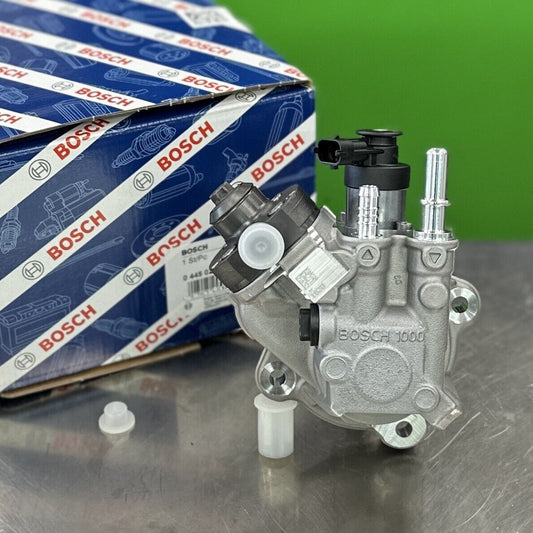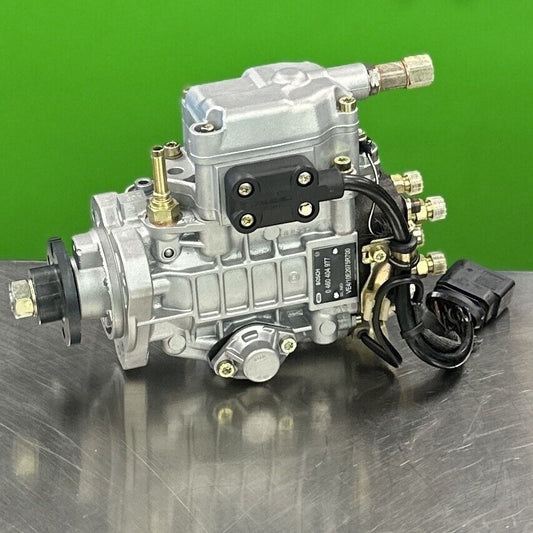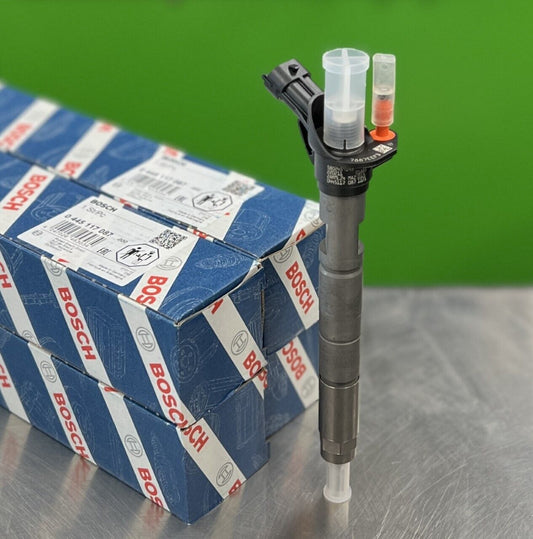Fuel Injector Troubleshooting Made Easy
A comprehensive guide to diagnosing and resolving common issues with fuel injectors in vehicles. Learn the steps and techniques to troubleshoot fuel injector problems effectively.
Understanding Fuel Injectors
Fuel injectors play a crucial role in the engine system, acting as the gateway for delivering the right amount of fuel to the engine for combustion. Think of fuel injectors as precision instruments that ensure your vehicle runs smoothly and efficiently. These small yet powerful components are responsible for spraying fuel into the engine cylinders at the perfect moment, allowing for optimal performance.
Inside a fuel injector, there are intricate parts such as the nozzle, valve, and solenoid that work together seamlessly to control the fuel flow. When the engine demands more power, the fuel injectors respond by adjusting the amount of fuel sprayed into the combustion chamber. This dynamic process is essential for maintaining the engine's performance and fuel efficiency.
Imagine fuel injectors as skilled marksmen hitting the bullseye every time they release fuel into the engine. Their precision and timing are critical for the engine to function at its best. Without properly functioning fuel injectors, your vehicle may experience a range of issues, from decreased power and rough idling to poor acceleration and increased emissions.
To ensure your fuel injectors are operating effectively, it's essential to understand their function and how they interact with other engine components. By recognizing the importance of fuel injectors in the overall performance of your vehicle, you can take proactive steps to maintain and troubleshoot any potential issues that may arise.
Signs of Fuel Injector Problems
When it comes to your vehicle's fuel injectors, recognizing the signs of potential issues is crucial for maintaining optimal performance. Imagine your car as a well-orchestrated symphony, with each fuel injector playing a vital role in the harmonious operation of the engine. However, just like any musical performance, even a minor disruption in one instrument can lead to a cacophony of problems.
One of the most common indicators of fuel injector problems is rough idling. Picture your car as a restless child, unable to sit still and constantly fidgeting. If you notice your vehicle shaking or vibrating while idling, it could be a sign that one or more fuel injectors are not functioning properly.
Another red flag to watch out for is poor acceleration. Think of your car as an athlete preparing for a race. If it struggles to pick up speed or respond promptly when you press the gas pedal, there may be a problem with the fuel injectors failing to deliver the necessary fuel to power the engine efficiently.
Additionally, keep an eye on your fuel efficiency. Consider your car as a marathon runner, needing a consistent and efficient fuel supply to reach the finish line. If you notice a sudden drop in fuel efficiency, such as frequent visits to the gas station or a decrease in miles per gallon, it could indicate fuel injector issues affecting the combustion process.
To help you better understand these signs, let's break it down into a simple checklist:
- ✓ Rough idling or engine vibration
- ✓ Poor acceleration or sluggish response
- ✓ Decreased fuel efficiency or increased fuel consumption
By recognizing these warning signs early on, you can take prompt action to diagnose and address any fuel injector problems before they escalate into more significant issues. Remember, proactive maintenance is the key to keeping your vehicle running smoothly and efficiently.
Diagnostic Tools and Techniques
When it comes to diagnosing fuel injector problems, having the right diagnostic tools and techniques at your disposal is crucial. These tools help in accurately identifying issues and determining the best course of action to resolve them promptly. One of the most commonly used tools is the OBD scanner, which allows you to access the vehicle's onboard computer system to retrieve error codes related to the fuel injectors.
In addition to the OBD scanner, visual inspections play a significant role in diagnosing fuel injector issues. By visually inspecting the injectors for signs of clogging, leaks, or other visible damage, you can gather valuable information about the condition of the fuel delivery system. This visual assessment can help in pinpointing the root cause of the problem.
Furthermore, performing a fuel injector balance test can provide insights into the performance of each injector. This test helps in determining if all injectors are delivering fuel evenly to the engine cylinders. Any imbalance in fuel delivery can indicate a potential problem that needs to be addressed.
Another essential technique in diagnosing fuel injector problems is the use of a fuel pressure gauge. By measuring the fuel pressure at various points in the system, you can identify issues such as low fuel pressure, which can affect the injector's performance. This diagnostic tool is valuable in troubleshooting fuel delivery issues efficiently.
Moreover, conducting a fuel injector flow test can help in assessing the flow rate of each injector. This test measures the amount of fuel delivered by each injector over a specific period, allowing you to identify any injectors that are underperforming or malfunctioning. By analyzing the flow rate, you can determine the health of the injectors and take appropriate action.
In conclusion, utilizing a combination of diagnostic tools and techniques is essential in effectively troubleshooting fuel injector problems. Whether it's using an OBD scanner for error code retrieval, performing visual inspections for visible issues, or conducting balance and flow tests for performance evaluation, having a comprehensive approach to diagnosis is key to resolving fuel injector issues efficiently.
Common Fuel Injector Solutions
When it comes to addressing fuel injector issues in your vehicle, there are several common solutions that can help resolve the problem efficiently. Understanding these troubleshooting steps can save you time and money in the long run, ensuring your engine runs smoothly and efficiently. Let's delve into some of the most effective solutions for fuel injector problems:
- Cleaning: One of the initial steps in addressing fuel injector issues is cleaning. Over time, injectors can get clogged with dirt, debris, or carbon buildup, affecting their performance. Using specialized cleaning solutions or additives can help remove these deposits and restore proper fuel flow.
- Testing: If cleaning doesn't solve the problem, testing the fuel injectors is crucial. Various diagnostic tools, such as fuel injector testers, can help determine if the injectors are functioning correctly. Testing can identify faulty injectors that may need to be replaced.
- Replacing: In cases where cleaning and testing don't yield positive results, replacing the fuel injectors may be necessary. Installing new injectors can significantly improve engine performance and fuel efficiency. It's essential to use high-quality, compatible injectors for optimal results.
- Maintenance: Regular maintenance practices can prevent future fuel injector issues. This includes using quality fuel, changing the fuel filter as recommended, and keeping the engine well-tuned. Proper maintenance can extend the lifespan of your injectors and ensure smooth operation.
By following these common fuel injector solutions, you can effectively troubleshoot problems and keep your vehicle running at its best. Remember, proactive maintenance and timely intervention are key to avoiding costly repairs and ensuring optimal engine performance. Take care of your fuel injectors, and they will take care of your engine's fuel delivery needs.
Frequently Asked Questions
-
What are the common signs of fuel injector problems?
Common signs of fuel injector issues include rough idling, poor acceleration, decreased fuel efficiency, and engine misfires. If you experience any of these symptoms, it's essential to address the problem promptly to prevent further damage to your vehicle.
-
How can I diagnose fuel injector problems?
Diagnosing fuel injector problems involves using diagnostic tools such as OBD scanners to read error codes, performing visual inspections for leaks or clogs, and conducting fuel injector tests. By following a systematic approach, you can accurately identify the root cause of the issue.
-
What are the common solutions for fuel injector issues?
Common solutions for fuel injector problems include cleaning the injectors to remove deposits, testing the injectors for proper function, and replacing faulty injectors if necessary. Regular maintenance practices like using fuel injector cleaners can also help prevent future issues and optimize performance.



